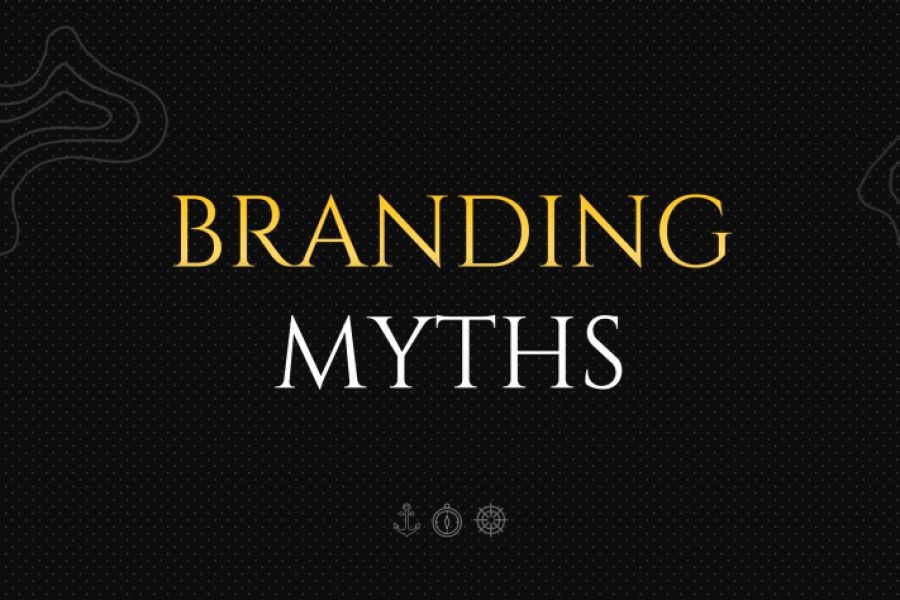In the world of economics, misconceptions often perpetuate misunderstandings that can shape policy and business practices. In Australia, a nation marked by its dynamic economy and significant global influence, these myths can impact everything from individual financial decisions to national policy frameworks. Understanding and debunking these myths is crucial for fostering a sustainable economic environment.
Myth 1: More Economic Growth Always Means Better Quality of Life
One prevalent myth is the belief that economic growth directly correlates with improved quality of life. While GDP growth often indicates a thriving economy, it doesn't automatically translate to better living conditions for all Australians. According to the Australian Bureau of Statistics (ABS), while GDP has grown steadily, income inequality has also widened. The trickle-down effect of economic growth often touted in political rhetoric doesn’t always reach the lower socio-economic classes, indicating that a growth-focused strategy may not be the most equitable approach.
Reality Check
In reality, focusing on sustainable growth that includes equitable wealth distribution, social welfare, and environmental conservation can lead to a better quality of life. The Australian Government’s emphasis on the Wellbeing Budget is a step towards such an inclusive approach, aiming to ensure economic policies benefit all Australians.
Myth 2: Property Investment is Always a Safe Bet
Another common myth is that property investment is a foolproof way to build wealth. While historically profitable, the property market can be unpredictable. The Reserve Bank of Australia (RBA) notes that property prices are subject to fluctuations influenced by interest rates, regulatory changes, and economic shocks. For instance, the COVID-19 pandemic led to significant volatility in the housing market, affecting many investors' returns.
Reality Check
Investors should consider diversification and understand market dynamics before committing to property investments. Engaging with financial advisors and keeping abreast of RBA reports can provide a more comprehensive view of the property market’s potential risks and rewards.
Myth 3: Sustainable Practices are Costly and Ineffective
Many businesses still believe that implementing sustainable practices is an expensive endeavor with little to no return on investment. However, this perspective overlooks the long-term benefits and cost savings associated with sustainability. According to CSIRO, businesses that adopt energy-efficient practices can reduce operational costs by 20% over five years.
Reality Check
Adopting sustainable practices not only aligns with global environmental goals but also enhances brand reputation and customer loyalty, particularly in eco-conscious markets like Australia. Businesses can leverage government incentives aimed at promoting green technologies to offset initial costs.
Case Study: Atlassian – Pioneering Sustainability in Tech
Problem: Atlassian, a global software company based in Australia, faced challenges in reducing its carbon footprint while maintaining rapid growth.
Action: The company implemented renewable energy solutions and sustainable product design practices.
Result: Atlassian achieved carbon neutrality and reported a 30% reduction in operational costs related to energy consumption.
Takeaway: This case highlights that integrating sustainability into business operations can lead to significant cost savings and improved market positioning.
Myth 4: High Taxes Harm Economic Growth
There's a pervasive belief that higher taxes deter economic growth by reducing incentives for businesses to invest and expand. However, a balanced tax policy can stimulate growth by funding essential public services and infrastructure, which in turn supports business operations.
Reality Check
According to the Australian Treasury, well-structured tax policies can promote economic stability and social equity. The key lies in finding a balance that supports government functions without stifling business innovation.
Myth 5: The Stock Market is a Gamble
Many Australians view the stock market as a high-risk gamble. While market volatility is inherent, informed investment strategies can mitigate risks. The Australian Securities and Investments Commission (ASIC) stresses the importance of understanding market trends and diversification in building a resilient portfolio.
Reality Check
Investors who educate themselves and utilize available resources, such as ASIC’s financial literacy programs, can effectively navigate the stock market and leverage it for significant long-term gains.
Pros and Cons Evaluation
Pros of Debunking Economic Myths
- Informed Decision-Making: Equips individuals and businesses with accurate knowledge, leading to better financial decisions.
- Policy Improvement: Facilitates the creation of more effective economic policies that reflect true market dynamics.
- Economic Stability: Reduces the risk of market bubbles and economic shocks caused by misinformation.
Cons of Economic Myths
- Misguided Investments: Can lead to financial losses due to poor investment choices based on incorrect assumptions.
- Policy Failures: Myths can skew public policy towards ineffective solutions, leading to wasted resources.
- Inequality: Persistent myths may exacerbate socio-economic disparities by misleading vulnerable populations.
Final Takeaways
- Economic growth should be inclusive and sustainable to enhance overall quality of life.
- Diversification and informed strategies are key in navigating property and stock markets.
- Sustainability in business operations can lead to cost savings and improved market positioning.
- Tax policies should balance economic growth with social equity.
- Investor education is crucial for leveraging the stock market effectively.
In conclusion, debunking these economic myths is essential for fostering a robust and sustainable economic environment in Australia. As a sustainability advocate, your role in promoting accurate economic understanding is crucial. Engage with the community, share insights, and contribute to a more informed public discourse.
People Also Ask
- How does debunking economic myths impact Australia? Understanding and correcting misconceptions can lead to more effective policy-making and better financial decisions, ultimately contributing to a more equitable and sustainable economy.
- What are the risks of believing economic myths? Believing in economic myths can result in poor investment choices, ineffective policies, and increased socio-economic disparities.
- How can Australians stay informed about economic trends? Engaging with reliable sources such as the ABS, RBA, and ASIC, along with participating in financial literacy programs, can help Australians stay informed about economic trends.
Related Search Queries
- Economic growth myths Australia
- Property investment risks Australia
- Sustainable business practices in Australia
- Australian tax policy impact on businesses
- Stock market strategies for Australians
- Financial literacy programs in Australia
- Informed investment strategies Australia
- Sustainable economic growth models
- Economic inequality in Australia
- Renewable energy cost savings

































Plano Earth
9 months ago